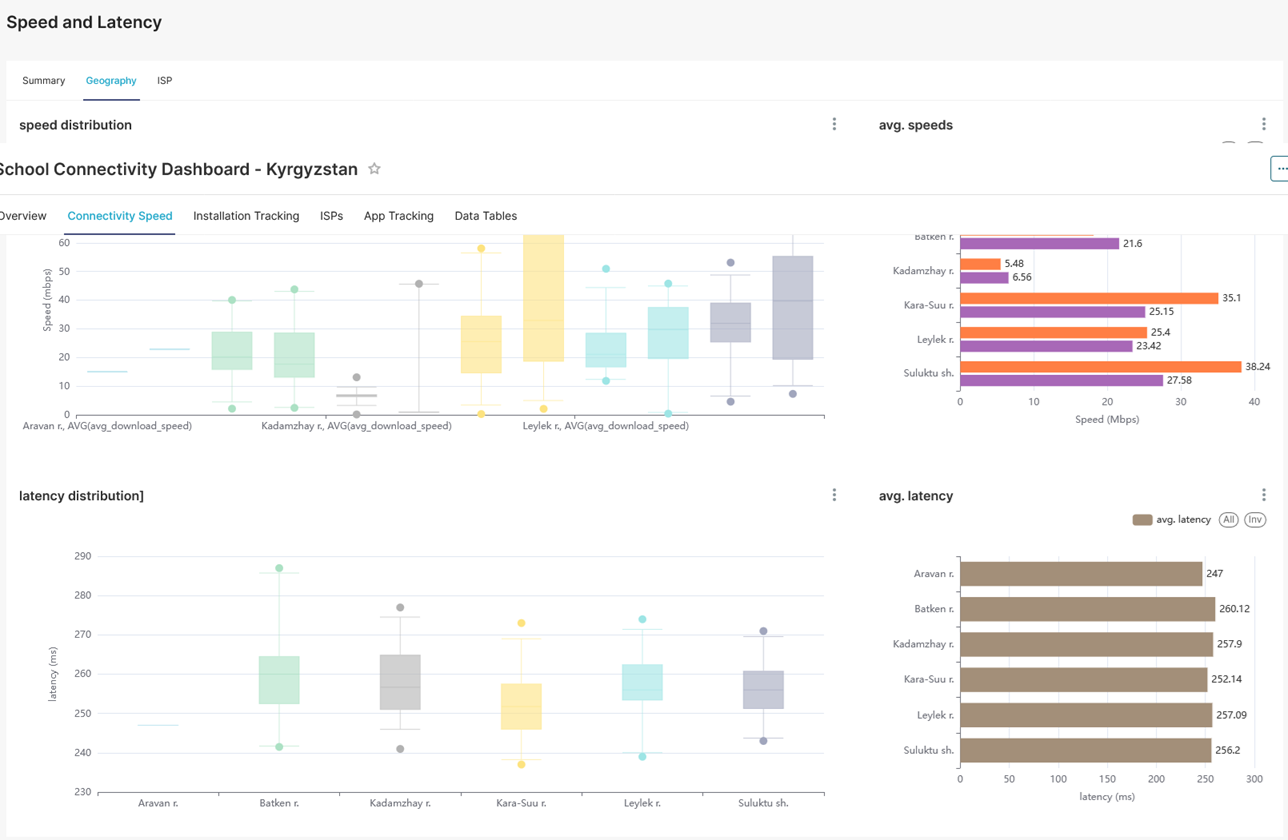The Internet Society Kyrgyzstan Chapter, working with the Ministry of Education and Sciences and the GIGA Global Team, has completed connectivity assessments at ten pilot schools in southern Kyrgyzstan using the GIGA Meter tool.
GIGA is a global initiative by UNICEF and ITU launched in 2019 to connect every school to the Internet by 2030. The program has mapped over 2.1 million schools across 140 countries and aims to connect 6 million offline schools globally. Since 2021, the GIGA Global has partnered with teh ISOC Kyrgyz Chapter on research of state of school connectivity, developing sustainable connectivity in Central Asian region.
The GIGA Meter is a desktop application that allows school administrators to monitor their institution’s connectivity. The tool measures upload and download speeds, latency, packet loss, and accessibility to educational platforms, providing comprehensive data beyond basic speed tests.
In Central Asia, Kyrgyzstan faces particular challenges due to its mountainous terrain and dispersed rural communities. GIGA is developing connectivity solutions and business models specifically for remote mountainous regions, with the Internet Society Kyrgyzstan Chapter serving as a key implementation partner.
The assessment covered schools in six districts: Aravan, Batken, Kadamzhay, Kara-Suu, Leylek, and Suluktu. The GIGA Meter was installed remotely at ten schools, with six installations remaining active during the monitoring period.
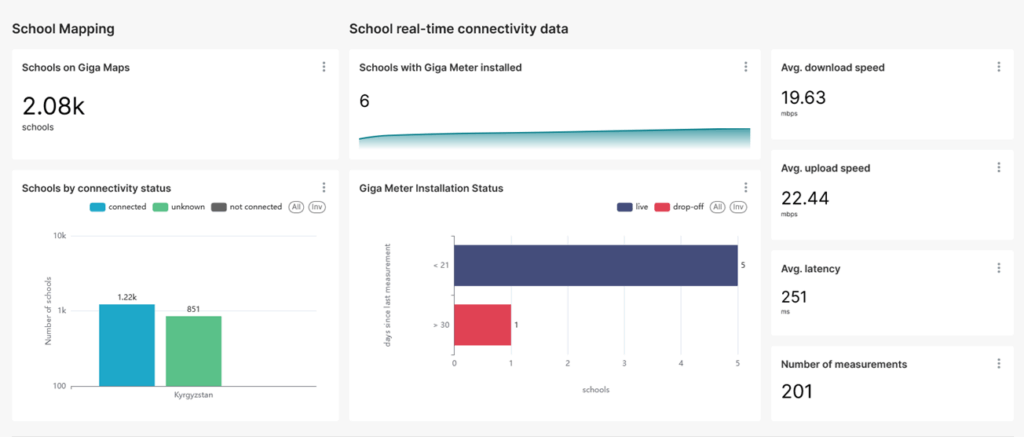
Key Connectivity Metrics
Based on 201 measurements collected over several weeks, the pilot revealed:
- Average download speed: 19.63 Mbps
- Average upload speed: 22.44 Mbps
- Average latency: 251 ms
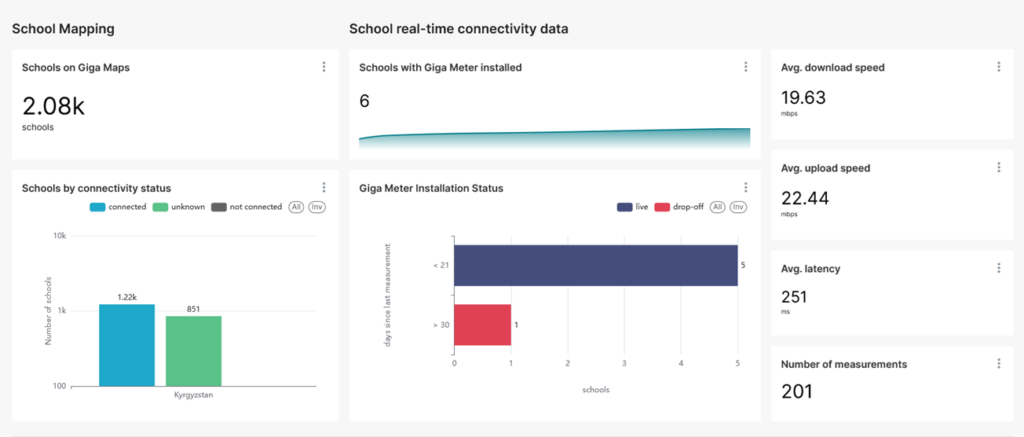
Regional Performance Variations
The data shows significant differences between regions:
Download speeds ranged from 21.6 Mbps in Batken to 35.1 Mbps in Kara-Suu, with most regions performing between 23-27 Mbps.
Latency was relatively consistent across regions, ranging from 247 ms in Aravan to 260 ms in Batken, indicating stable but elevated response times due to the remote fiberoptical location of measurement servers (Mumbai, India).
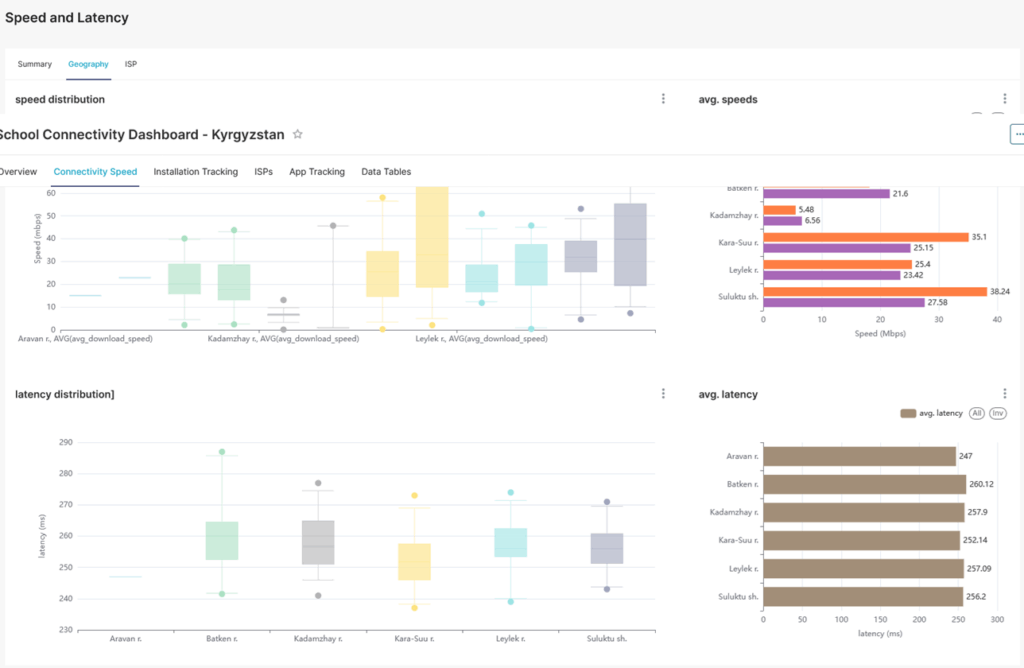
Connectivity Patterns
Time-series data from May through June shows notable variations in performance:
- Daily speed fluctuations ranged from near zero to peaks of 50+ Mbps
- Upload speeds demonstrated more stability than download speeds
- Latency remained consistent around 250-270 ms throughout the monitoring period
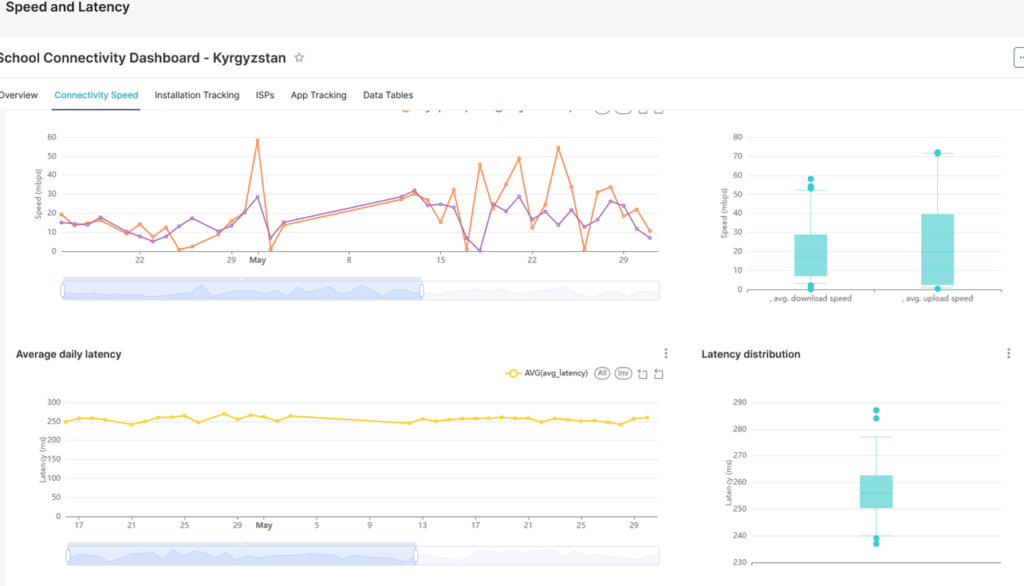
Of Kyrgyzstan’s 2,080 schools mapped on GIGA’s platform, 1,220 are classified as connected while 851 have unknown connectivity status. However, the Ministry of Education and Sciences as well as the Ministry of Digital Development reported repeatedly that over 90% of schools connected to the Internet. This pilot provides detailed performance data for a representative sample of connected schools in the southern regions.
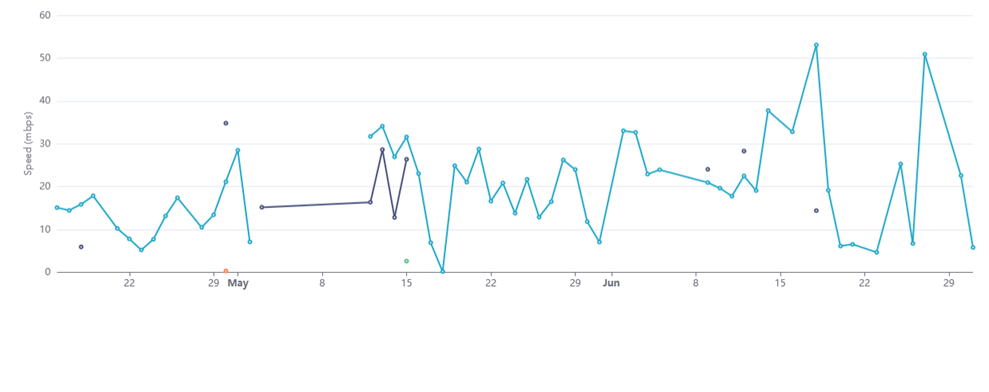
Implications
The results confirm earlier assessments of Kyrgyzstan’s school connectivity landscape, showing adequate speeds for basic educational applications but with significant variability that could impact consistent access to digital learning resources.
This pilot establishes a additional measurement toolkit for ongoing monitoring and provides evidence for targeted improvements in school connectivity across the country’s rural regions.

